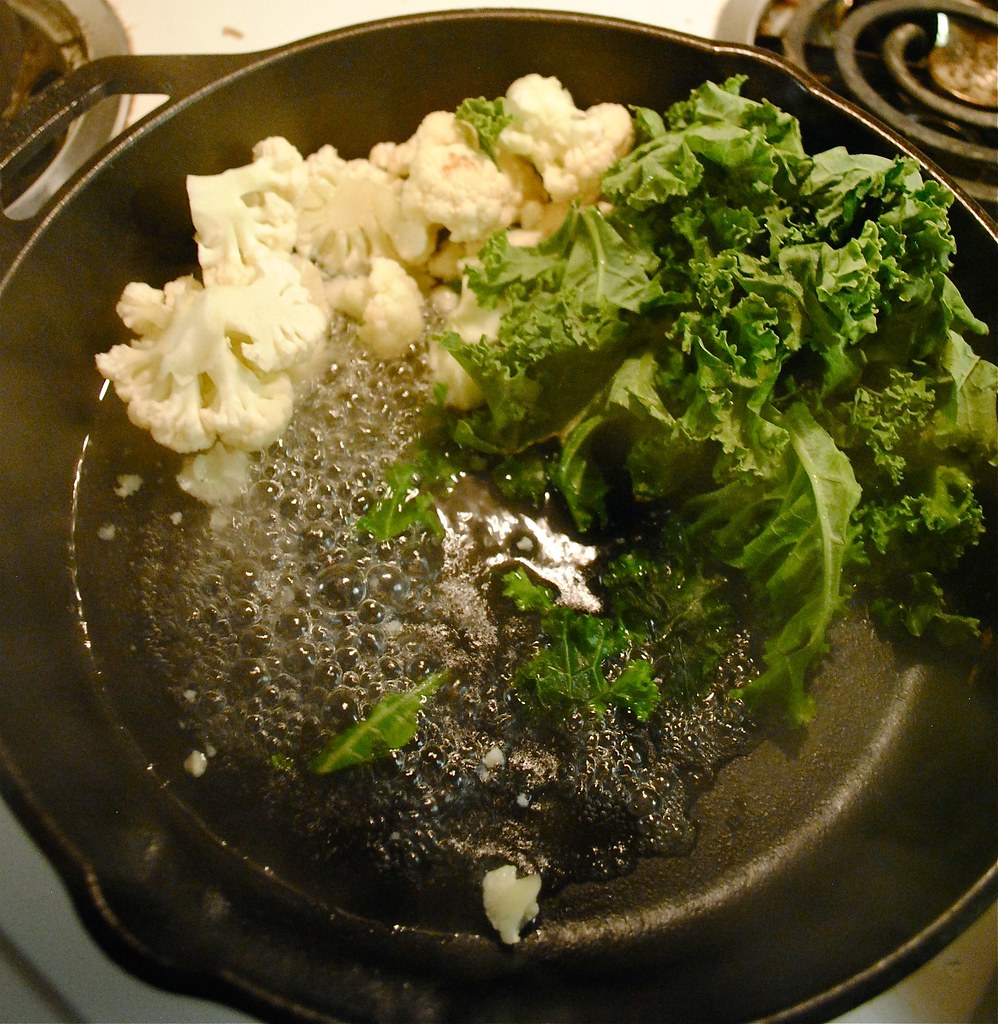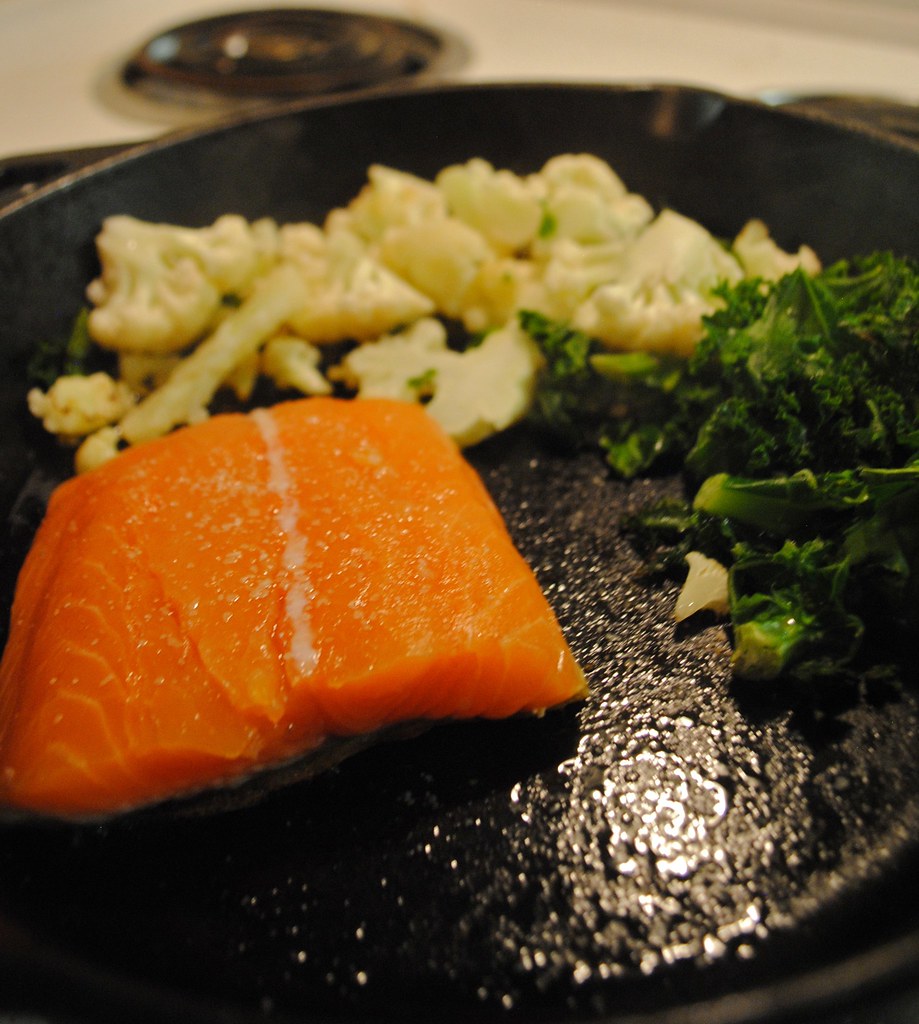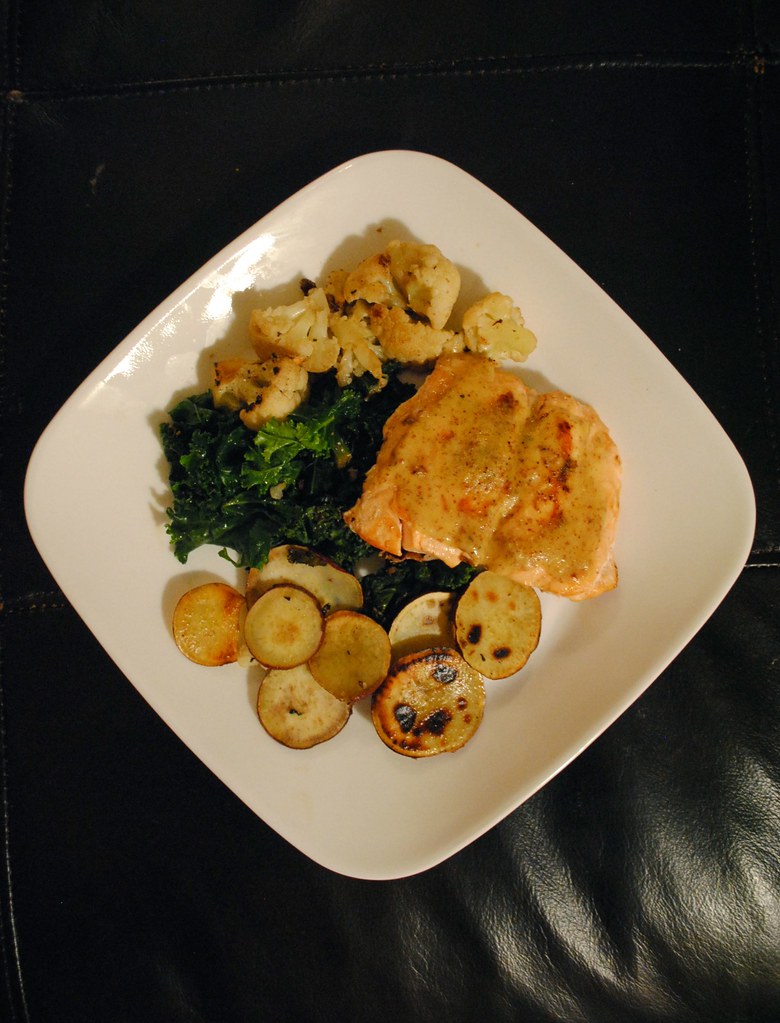Who wants to do the dishes after cooking? I highly doubt there are any volunteers. The best way to have to clean less is to just use less equipment in the kitchen. One-pan meals are always the answer and what better vessel to use than a cast-iron skillet? This pan conducts and holds heat efficiently so you can cook anything and everything.
Tell me what you eat, and I’ll tell you what (or how lazy) you are. A quick college dinner doesn’t have to be ramen or easy-mac – just use these simple tricks to come up with a cleverly crafted meal. So allez cuisine and cook like a chef using only a cast-iron pan.
1. Start by Steaming
Place the vegetables you want to cook in the pan and add some water to steam them before continuing to cook off the rest of your ingredients. The steam helps to start breaking down the vegetables without added fat, especially because they will take the longest to cook due to high fiber content.
2. Prepare Your Protein
Once the water from the vegetables has steamed off, add a little bit of oil to the pan to start cooking your protein. Pictured here: salmon starting to sear. This step works for any type of protein, from poultry to pork and seafood to steak.
3. Carb Loading
Last, bring on the carbs! A cast iron pan is a great way to sauté potatoes, or even fry them like kettle chips. Be sure to slice them thinly so they cook quickly. Other items that work in place of potatoes include polenta or adding olive oil and garlic to a slice of bread to make garlic toast.
Proof that there is a quick and not dirty way to a gourmet meal – enjoy!
A brief note on caring for your cast-iron –
Cast Iron pans are NOT dishwasher safe, placing it in there is considered a kitchen sin – always wash your pan by hand. Rinse the pan with hot water immediately after use and if you need to scrub off food use kosher salt, a sponge or a little bit of gentle dish soap. Season the pan by rubbing with vegetable oil so the pan keeps its non-stick properties.
More good stuff here:





